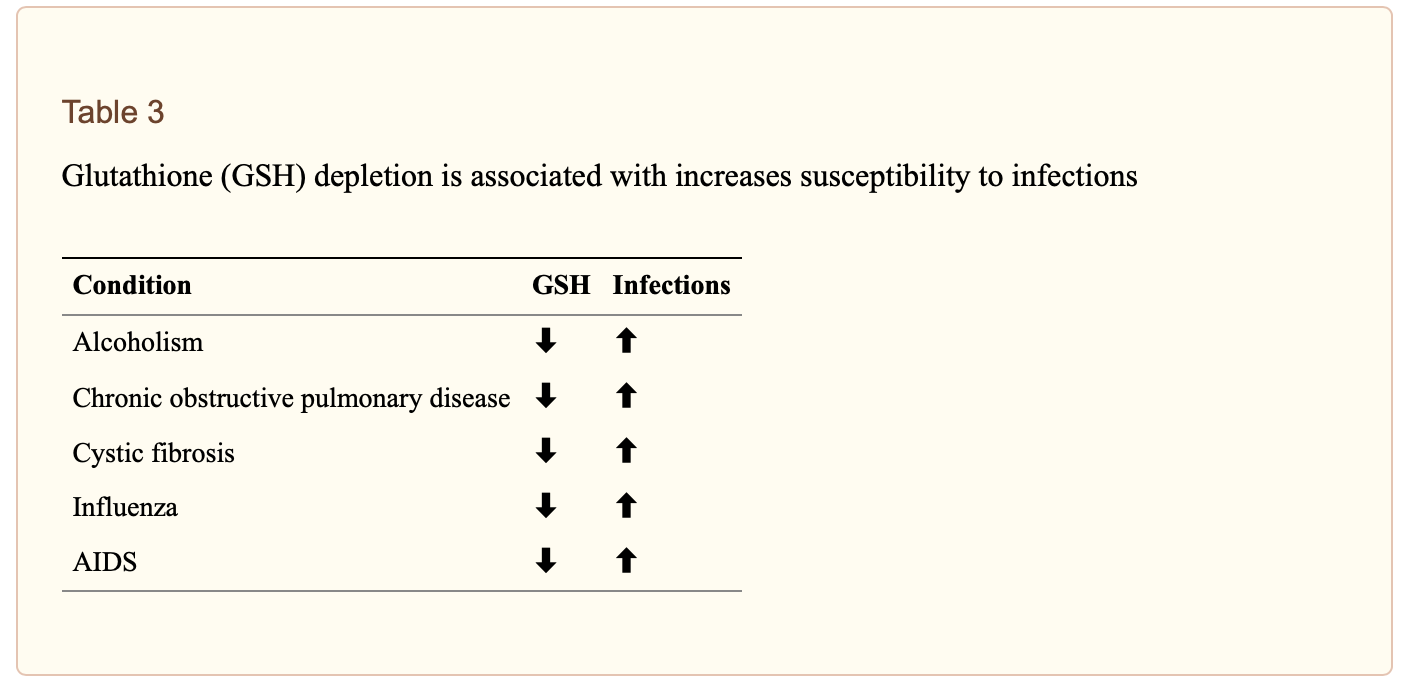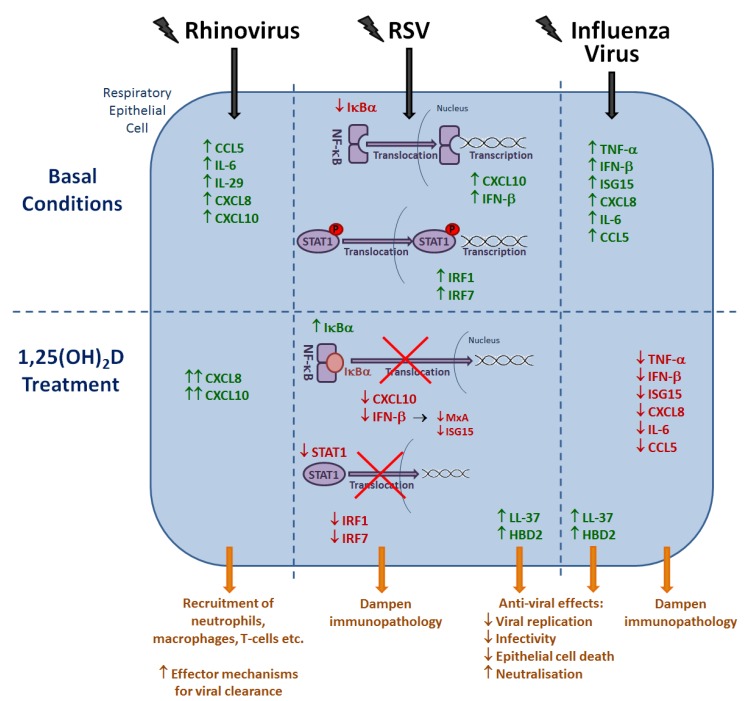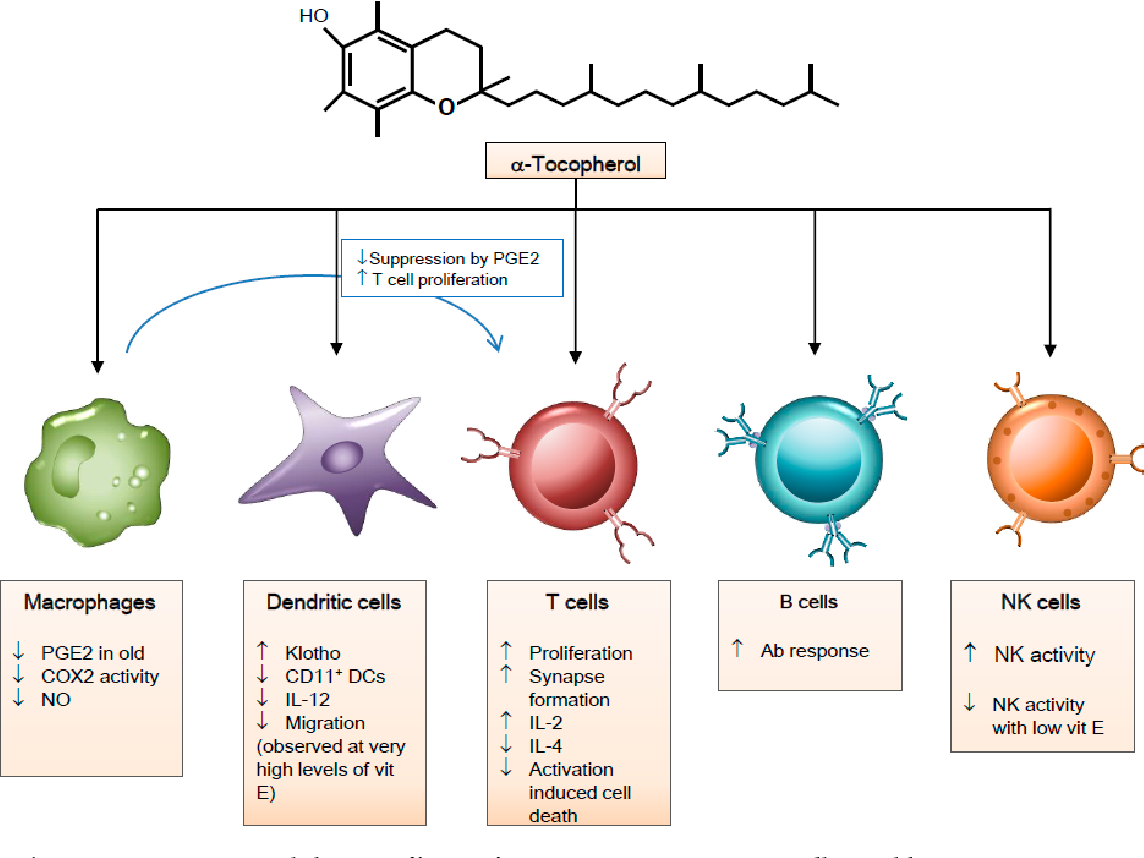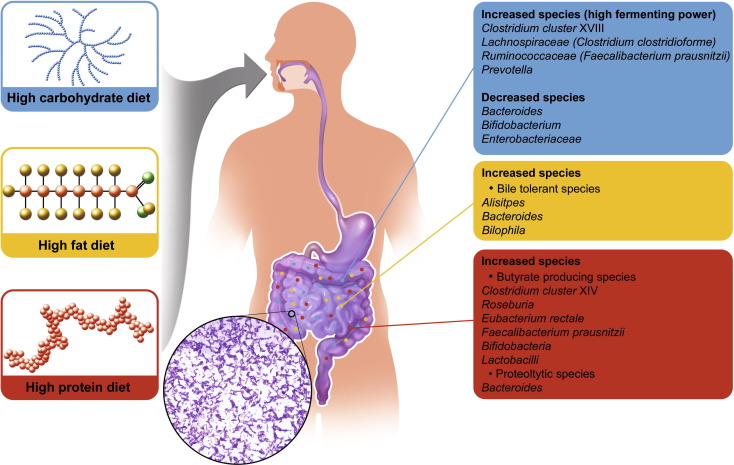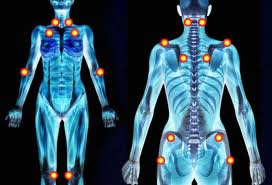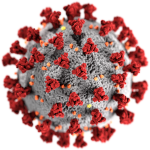 The pandemic of Covid 19 is very anxious, it is important to protect yourself and respect the guidelines of distancing and prevention life but even more important is to optimized and boost your immune system.
The pandemic of Covid 19 is very anxious, it is important to protect yourself and respect the guidelines of distancing and prevention life but even more important is to optimized and boost your immune system.
Every day we are in contact with many viruses and bacteria. We carry 1O times more bacteria than the total number of our cells but we are still healthy thanks to our barriers: the skin, the digestive tract and the respiratory tract as well as our innate and adaptive immune system.
Severe manifestations of Covid 19 are mainly due to a disproportionate response from the patient’s adaptive immune system.
Here are some nutritional and micronutritional tips that can optimize your immune system.
1. Zinc
Zinc deficiency occurs most often in the elderly, vegans, people with chronic diseases,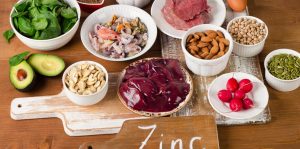 Zinc deficiency is responsible for a weakened immune system. These data therefore underline the importance of sufficient zinc intake.
Zinc deficiency is responsible for a weakened immune system. These data therefore underline the importance of sufficient zinc intake.
One manifestation of zinc deficiency is a loss of smell and taste as encountered in covid 19 infection.
Zinc is an essential micronutrient for an effective antiviral response. It has direct antiviral properties and is also essential to generate antiviral responses from our innate and acquired immune system.
Zinc is an integral part of many viral proteins (proteases and polymerases), emphasizing the importance of regulating the cell and blood distribution of zinc to inhibit viral replication and dissemination. (1)
2. Glutamine
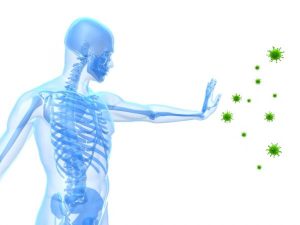 Glutamine is the most abundant free amino acid in the body. It plays a key role in cell survival and proliferation.
Glutamine is the most abundant free amino acid in the body. It plays a key role in cell survival and proliferation.
Glutamine is a component of our cells and tissues, it is the main fuel for fast-renewal cells, such as thoseof the respiratory and intestinal mucous membranes. It is the second most important and abundant compound in our body after water. It is a conditionally essential amino acid. It actively participates in the fihgt against pathogens responsible for infection by improving the catabolism of amino acids to help the immune response, thus limiting the availability of nutrientsthat contain nitrogen to attack the micro-organism.
This evolutionary mechanism is beneficial for controlling the inflammatory response to infection. (2)
The immune system uses glutamine as a fuel for proper functioning.
Glutamine is used in pre and post-operative patients and also by athletes to restore immune function. (3) , (8).
3. Omega 3 fatty acid
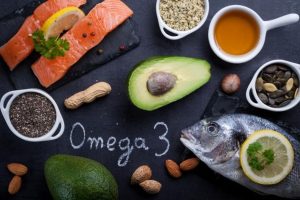 Omega 3-omega 6 balance is very rarely achieved because our diet is rich in omega 6 and low in omega 3, we should consume 200 gr 3 times a week of small fatty fish or take dietary supplements.
Omega 3-omega 6 balance is very rarely achieved because our diet is rich in omega 6 and low in omega 3, we should consume 200 gr 3 times a week of small fatty fish or take dietary supplements.
Omega-3 fatty acids have an immunomodulatingeffect on different cells of the immune system (summarized in Table 1). All immune cells studied to date are reactive to omega-3 fatty acids. They have an inhibitory effect on the activation of innateand adaptive immune cells. It is interesting to note that some specific immune functions are favored by omega-3 fatty acids namely phagocytosis by macrophages and neutrophils or Treg differentiation (T cells regulating inflammation-infection). (4)
Omega-3s generate specialized mediators that stop inflammation. (5) , (6)
4. Selenium
Viral pathogens induce oxidative stress through increasing generation of free radicals and 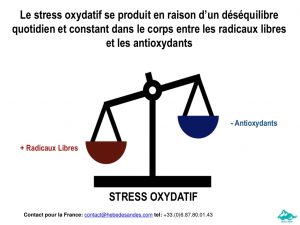 alteration of cell free radical trapping systems. In the context of antioxidant defences, selenoprotic proteins(selenium-dependent proteins to catalyse reaction), such as gluthation peroxidase, play an important rolein the control of oxidative stress (neutralization of free radicals).
alteration of cell free radical trapping systems. In the context of antioxidant defences, selenoprotic proteins(selenium-dependent proteins to catalyse reaction), such as gluthation peroxidase, play an important rolein the control of oxidative stress (neutralization of free radicals).
Selenium deficiency creates a weakening of the defense against infectious diseases by reducing the expression of seleenoproteins. However, the nutritional status of the host may also lead to mutations in the viral genome from a benign or slightly pathogenic virus to a highly virulent virus under oxidative stress that may spread further to hosts with sufficient selenium intake. (7)
5. Copper
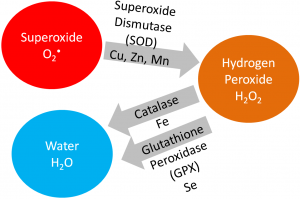 The immune system needs copper to perform its functions. The number of neutrophils (white blood cells) in the human peripheral blood is reduced in cases of severe copper deficiency. Not only is their number reduced, but their ability to generate free radicals to kill ingested micro-organisms is also reduced in case of manifest copper deficiency.
The immune system needs copper to perform its functions. The number of neutrophils (white blood cells) in the human peripheral blood is reduced in cases of severe copper deficiency. Not only is their number reduced, but their ability to generate free radicals to kill ingested micro-organisms is also reduced in case of manifest copper deficiency.
Copper is a cofactor of a protein (enzyme) called superoxide dismutase that is involved in the detoxification of free radicals, if its activity cannot be modulated as a function of inflammation, it will not be neutralized and therefore the immune response will be disproportionate. (9)
6. Gluthation
Gluthation content (GSH) contributes to the abilityof the host cell to reduce influenza virus replication. In some cell populations, a decrease in levels could likely lead to a persistent viral infection. (10)
The functions of the GSH are not only inhibitory for the inflammatory response.In fact, GSH is essential for certain functions of the immune system, bothinnate and adaptive, among other things, it inhibitsthe production of most inflammatory cytokines. (11)
7. Vitamin D
Vitamin D has important regulatory functions on the cells of the innate immune response as well as the adaptive immune response (23). Insufficient levelsof vitamin D can lead to a deregulation of immune responses. It appears that higher doses for supplementation may have better results. (12)
Variations in levels of 25 hydroxy vitamin D have the potential to influence innate and adaptive immune responses.(13)
There is irrefutable evidence of an epidemiologicalassociation between poor vitamin D status and various diseases including viral infections. (14)
Vitamin D deficiency is associated with an increasedrisk of acute viral respiratory infection. Vitamin D is an immunomodulating micronutrient. (15) , (22)
8. Vitamin A
Vitamin A plays an important role in the regulationof tolerance and immunity. The  composition of the microbiota varies according to the vitamin A statusand a good microbiota allows an adapted immune response which will not be excessive.
composition of the microbiota varies according to the vitamin A statusand a good microbiota allows an adapted immune response which will not be excessive.
Vitamin A associated with vitamin D can counter the inflammatory response triggered by each pathogen. They have an immunomodulating power, a strong anti-inflammatory activity by negatively regulating the expression of several pro-inflammatory genes. Vitamins A and D are potent immunomodulators, which could be particularly important in systemic infections, where the deregulation of the immune response is responsible for the fatal outcome. In addition, recent studies have described significant vitamin A and vitamin D deficiencies in seriously ill patients and have associated this deficiency with an increased risk of mortality. For example, monitoring of vitamin A and vitamin D levels in the blood, as well as adequate supplementation in people admitted to intensive care units, could have far-reaching prophylactic and therapeutic implications for serious infections.(16, 24)
9. Vitamin E
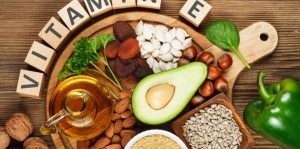 The main dietary sources of vitamin E are vegetable oils. Nuts are also good sources of vitamin E.
The main dietary sources of vitamin E are vegetable oils. Nuts are also good sources of vitamin E.
Vitamin E improves immune responses, it provides protection against several infectious diseases. It also plays an immunomodulating role. (17)
10. Microbiota
 Some patients with COVID-19 had intestinal microbialdysbiosis with reduced bacteria such as Lactobacillus and Bifidobacterium. Nutritional and gastrointestinalfunction should be assessed for all patients. Nutritionalsupport and administration of prebiotics or probioticshave been suggested to regulate the balance of the intestinal microbiota and reduce the risk of secondaryinfection due to bacterial translocation.(18)
Some patients with COVID-19 had intestinal microbialdysbiosis with reduced bacteria such as Lactobacillus and Bifidobacterium. Nutritional and gastrointestinalfunction should be assessed for all patients. Nutritionalsupport and administration of prebiotics or probioticshave been suggested to regulate the balance of the intestinal microbiota and reduce the risk of secondaryinfection due to bacterial translocation.(18)
It has an intimate interaction between the digestive microbiota and invasive viruses, which always dictatesthe outcome of an infection.Fecal microbiotatransplantation and probiotic supplements have alreadyproven useful in reducing the severity of severaldiseases. There are still significant gaps in ourunderstanding of the interactions between the microbiota and viruses, and constant optimization of these potential treatment methods is clearly necessaryto better control viral infections through microbiotamodulation.(19)
11. Prevotella
Several teams of researchers in several countries (China, France, USA,…) have made a breakthrough in understanding the effects of coronavirus. COVID 19 would not kill directly but by infecting a bacterium present in the intestine, the Prevotella. It would cause an excessive immune response that would attack the lungs and lead to death. This explains several bridges:
If COVID-19 turns out to be a mixed infection, both viral and bacterial, the efficacy of Dr. Raoult would be demonstrated as well as that of Dr. Paillard-Franco who advocates double antibiotic therapy.
Children are little affected by this Sars-Cov-2, while the elderly are the mostaffected: the presence of Prevotella is low in children but increases with age.
Obese people would be more affected because their unbalanced intestinal floracontains more Prevotella.
Interest of azithromycin to be prescribed from the start of infection with COVID-19 and even a possibility to treat preventively.(20)
Azithromycin inhibits H1N1 viral replication in patients treated before infection. After contamination, azithromycis does not prevent binding of the virus to the receptor but inhibits endocytosis in the host cell the same goes for virusesgenerated after replication. Azithromycin may be an effective macrolide for the treatment of human influenza.(21)
Bibliography
- The Role of Zinc in Antiviral Immunity. A Read, S., Obeid, S., Ahlenstiel, C., & Ahlenstiel, G. (2019, juillet).
- Glutamine: Metabolism and Immune Function, Supplementation and Clinical Translation. Cruzat, V., & All. (2018, October 23).
- Glutamine Metabolism and Its Role in Immunity, a Comprehensive Review. Shah, A. M., & All. Animals (Basel). 2020 Feb; 10(2) 326.
- Modulation of host defence against bacterial and viral infections by omega-3 polyunsaturated fatty acids. Husson, M., Levy, D., Portal, C., & All. (2016, December).
- Effects of Omega-3 Fatty Acids on Immune Cells. Gutiérrez, S., & and All.
Int. J. Mol. Sci. 2019, 20(20), 5028;
- Enriched Marine Oil Supplements Increase Peripheral Blood Specialized Pro-Resolving Mediators Concentrations and Reprogram Host Immune Responses. A Randomized Double-Blind Placebo-Controlled Study. Souza, P., Marques , R., & All.
Circulation Research. 2020;126:75–90
- Selenium, Selenoproteins and Viral Infection. Guillin, O., Vindry, C., & All. Nutrients 2019 Sep; 11(9): 2101.
- Glutamine Metabolism and Its Role in Immunity, a Comprehensive Review. Shah, A. M., & All. Animals (Basel). 2020 Feb; 10(2) 326.
- Copper and immunity. Percival, S. J Clin Nutr1998 May;67(5 Suppl):1064S-1068S.
-
Glutathione Fine-Tunes the Innate Immune Response toward Antiviral Pathways in a Macrophage Cell Line Independently of Its Antioxidant Properties. Diotallevi, M., & All. Frontiers in Immunology, 29 Sep 2017, 8:1239
-
Role of glutathione in immunity and inflammation in the lung. Ghezzi, P. Int J Gen med. 2011; 4: 105-113.
- Vitamin D supplementation to prevent acute respiratory tract infections: Systematic review and meta-analysis of individual participant data.Martineau, A., & All. BMJ Clinical Research356:i6583 · February 2017
- Modulation of the Immune Response to Respiratory Viruses by Vitamin D. Greiller, C., & Martineau, A. Nutrients. 2015 Jun; 7(6): 4240–4270.
- The interplay between vitamin D and viral infections. Majid Teymoor-Rad, and All. Rev MedVirol. 2019 Mar;29(2):e2032.
- Regulation of Immune Function by Vitamin D and Its Use in Diseases of Immunity. Vanherwegen, A., & All. Endocrinol Metab Clin North Am. 2017 Dec;46(4):1061-1094.
- Differential Effects of Vitamins A and D on the Transcriptional Landscape of Human Monocytes during Infection. Klassert, T., & All. Klassert, T., & All. Nature (2017, January 17) : article number: 40599 (2017).
- The Role of Vitamin E in Immunity. Ga Young Lee, & Han, S. Nutrients. 2018 Nov; 10(11): 1614.
- Management of corona virus disease-19 (COVID-19): the Zhejiang experience. Kaijin xu. Journal of Zhejiang University. Medicalscience 49(1) · February 2020
- The Commensal Microbiota and Viral Infection: A Comprehensive Review. Na, L., Wen-Tao, M., & All. Frontiers in Immunology ,04 July 2019
- Webinar du 21 avril 2020 Professeur Vincent Castronovo
- Azithromycin, a 15-membered macrolide antibiotic, inhibits influenza A(H1N1)pdm09 virus infection by interfering with virus internalization process. TranDH, Sugamata R, Hirose T and All. J Antibiot(Tokio). 2019 Oct;72(10):759-768.
- Evidence that Vitamin D Supplementation CouldReduce Risk of Influenza and COVID-19 Infections and Deaths. William B. Grant and All.Nutrients 2020, 12(4), 988. 2 April 2020.
- Vitamin D levels do not predict the stage of hepaticfibrosis in patients with non-alcoholic fatty liverdisease: A PRISMA compliant systematic reviewand meta-analysis of pooled data. Behnam Saberi, Alia S Dadabhai, Julie Nanavati, Lin Wang, Russell T Shinohara, Gerard E Mullin, Behnam Saberi, Alia S Dadabhai, Gerard E Mullin. World J Hepatol. Jan 27, 2018; 10(1): 142-154.
- Vitamin D: Effect on Haematopoiesis and Immune System and Clinical Applications. Mayte Medranoand All. Int. J. Mol. Sci. 2018, 19(9), 2663
- A Review of Micronutrients and the Immune System–Working in Harmony to Reduce the Risk of Infection. Adrian F. Gombart and All. Nutrients 2020, 12(1), 236.
- Diet influence on the gut microbiota and dysbiosisrelated to nutritional disorders. Maryam TidjaniAlou, Jean-Christophe Lagier, Didier Raoult.Human Microbiome Journal, Volume 1, September2016, Pages 3-11.

